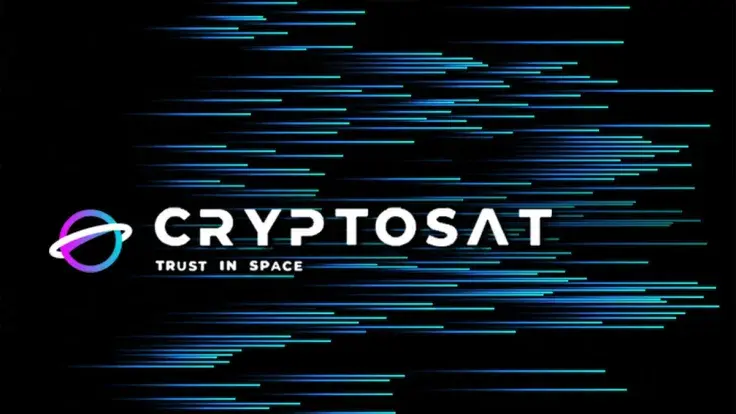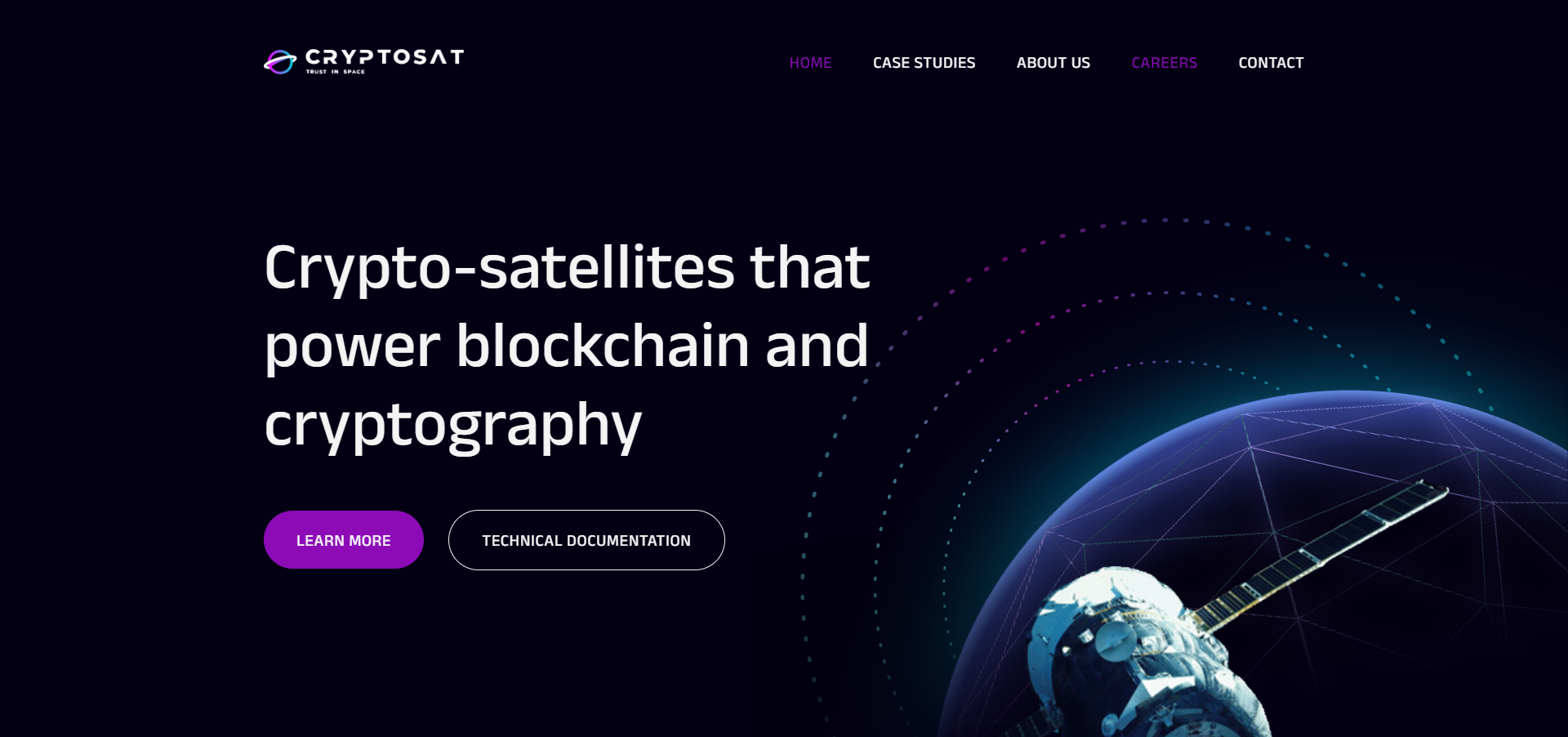
A brand new technology that allows users to leverage orbital satellites as a technical "back-end" for decentralized applications is opened for testing through simulation UI with real-world specifications.
Cryptosat release Cryptosim, accelerates adoption of blockchain apps on satellites
According to the official announcement shared by Cryptosat, a pioneering iteration of its Cryptosim Software is now live and can be stress tested by blockchain developers working on various dApps.

The first package of software features an API tutorial and a detailed satellite trajectory simulation. Its trial is set to explain the basics of interaction with Cryptosat's low earth orbit (LEO) satellites for blockchain devs.
All API instruments can be tried through a JavaScript console: users can therefore interact with the simulated satellite to request its status, sign messages, request randomness, generate keypairs and so on.
Cryptosat's design guarantees the tamper-proof root-of-trust for all applications it onboards thanks to complete device isolation. This, in turn, becomes possible with Cryptosat's low earth orbit (LEO) satellites.
Since satellites are not visible to ground stations 24/7, the ecosystem works in an asynchronous manner: devs can study its details while working with testnet tools.
Web3 teams are invited to experiment with Cryptosat API
A limited range of functions is available with the inaugural release. For instance, testing API can be used to generate public randomness (through a Random Beacon mechanism), private randomness, signed timestamps for smart contracts and so on.
Also, the product can be used for a "delayed encryption" procedure: it can only disclose a public key for this or that keypair, while the private key will remain unknown until the predetermined date arrives.
Currently, the team is waiting for Web3 developers to test new opportunities.
The Cryptosat project was introduced by Stanford PhDs and second-time founders Yonatan Winetraub and Yan Michalevsky in 2021. The first satellite was launched into orbit in May 2022.
 Gamza Khanzadaev
Gamza Khanzadaev Arman Shirinyan
Arman Shirinyan Dan Burgin
Dan Burgin Alex Dovbnya
Alex Dovbnya